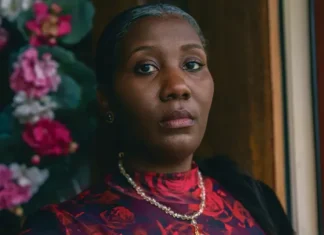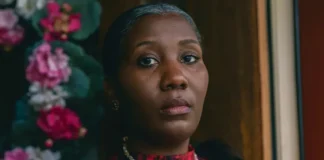
By Cynthia Flash
Special to The Medium
The unspoken message Jackie Brown remembers hearing from the time she was diagnosed with type 1 diabetes at age 13 was this: you’re going to die.
The doctors didn’t say it in so many words. But that’s what Brown heard after she lost 60 pounds during the summer between seventh and eighth grade. “From the moment I was diagnosed it was all doom and gloom,” said Brown, now age 38 and living in Renton with her husband and teen daughter and son. “It was the best secret never told. ‘You have type 1 diabetes. You won’t grow to adulthood.’ I felt like I was going to sit and wait to die.”
That was 1987 in Chicago. It turns out, the Brown is a survivor.
Luckily for Brown, she had moved in 2002 from Chicago to Wisconsin, where she met a nurse educator from the University of Wisconsin who asked, “Who said you had to die?”
“I never thought of it in those terms,” said Brown, who has been taking insulin injections all this time. “I started to have vision problems then but I also started to turn my thinking around.” The nurse educator also told Brown about the possibility that she could develop chronic kidney disease, which often happens in people with diabetes. Brown was encouraged to monitor her blood pressure, cut back on salt, watch her diet and exercise. That worked for a while. But in 2010 Brown’s kidneys were failing. She would soon need dialysis to replace the function her kidneys no longer provided.
Brown opted to do dialysis at home under the guidance of Northwest Kidney Centers rather than receiving dialysis treatments at a clinic, as most people do. Although self-treatment is not the most common form of dialysis, Northwest Kidney Centers recommends it to patients who are willing and able to dialyze that way because patients can benefit from more frequent dialysis treatments (five times a week instead of three times a week) and they can do it from the comfort of home.
With her background as a nursing assistant and medical assistant — and the help of her husband, Eli, 18-year-old daughter, Lenore, and 13-year-old son, Sonne, Brown is comfortable using the home dialysis machine five days a week.
“I like doing it by myself and for myself. I have that spirit of independence. Being able to be independent with dialysis lets me feel that I’m getting revenge on the diabetes,” she said, adding that her family entertains her during her treatments.
But that isn’t all. Brown continues to persevere and take responsibility for improving her health. She is hoping to receive a kidney/pancreas transplant. At 235 pounds she qualified for a kidney transplant. But her doctor told her that if she wanted to qualify for a pancreas transplant she would need to lose weight. Brown tried to do it through diet and exercise. And although that helped her maintain her weight, she was unable to drop the pounds.
So last August Brown opted for gastric bypass surgery. Ten months later she has lost more than 80 pounds. Now weighing 151 pounds, she qualifies for a kidney/pancreas transplant.
“Now, in 2013, I feel like I’m in a pretty good spot as far as the diabetes goes,” she said. “I do finger sticks to check glucose four to 10 times a day. I count carbs when I eat, which helps me determine how much insulin to take. I do as much exercise as I’m comfortable doing.”
Brown said if she can lose weight and work on her health problems, others with diabetes and kidney disease can too. “Making the first appointment is the hardest part. After that, it all just falls into place,” she said. “Once you make that first appointment, there are a million hands that are on you trying to help you move it along. That makes it easier. Diabetes or even kidney failure doesn’t have to be a death sentence. It’s very manageable. It’s doable.”
Brown
Perseverance And Family Support Help Diabetes And Kidney Patient See The Future
w/pic (Jackie Brown and family)
Caption: Jackie Brown with members of her family.
By Cynthia Flash
Special to The Medium
The unspoken message Jackie Brown remembers hearing from the time she was diagnosed with type 1 diabetes at age 13 was this: you’re going to die.
The doctors didn’t say it in so many words. But that’s what Brown heard after she lost 60 pounds during the summer between seventh and eighth grade. “From the moment I was diagnosed it was all doom and gloom,” said Brown, now age 38 and living in Renton with her husband and teen daughter and son. “It was the best secret never told. ‘You have type 1 diabetes. You won’t grow to adulthood.’ I felt like I was going to sit and wait to die.”
That was 1987 in Chicago. It turns out, the Brown is a survivor.
Luckily for Brown, she had moved in 2002 from Chicago to Wisconsin, where she met a nurse educator from the University of Wisconsin who asked, “Who said you had to die?”
“I never thought of it in those terms,” said Brown, who has been taking insulin injections all this time. “I started to have vision problems then but I also started to turn my thinking around.” The nurse educator also told Brown about the possibility that she could develop chronic kidney disease, which often happens in people with diabetes. Brown was encouraged to monitor her blood pressure, cut back on salt, watch her diet and exercise. That worked for a while. But in 2010 Brown’s kidneys were failing. She would soon need dialysis to replace the function her kidneys no longer provided.
Brown opted to do dialysis at home under the guidance of Northwest Kidney Centers rather than receiving dialysis treatments at a clinic, as most people do. Although self-treatment is not the most common form of dialysis, Northwest Kidney Centers recommends it to patients who are willing and able to dialyze that way because patients can benefit from more frequent dialysis treatments (five times a week instead of three times a week) and they can do it from the comfort of home.
With her background as a nursing assistant and medical assistant — and the help of her husband, Eli, 18-year-old daughter, Lenore, and 13-year-old son, Sonne, Brown is comfortable using the home dialysis machine five days a week.
“I like doing it by myself and for myself. I have that spirit of independence. Being able to be independent with dialysis lets me feel that I’m getting revenge on the diabetes,” she said, adding that her family entertains her during her treatments.
But that isn’t all. Brown continues to persevere and take responsibility for improving her health. She is hoping to receive a kidney/pancreas transplant. At 235 pounds she qualified for a kidney transplant. But her doctor told her that if she wanted to qualify for a pancreas transplant she would need to lose weight. Brown tried to do it through diet and exercise. And although that helped her maintain her weight, she was unable to drop the pounds.
So last August Brown opted for gastric bypass surgery. Ten months later she has lost more than 80 pounds. Now weighing 151 pounds, she qualifies for a kidney/pancreas transplant.
“Now, in 2013, I feel like I’m in a pretty good spot as far as the diabetes goes,” she said. “I do finger sticks to check glucose four to 10 times a day. I count carbs when I eat, which helps me determine how much insulin to take. I do as much exercise as I’m comfortable doing.”
Brown said if she can lose weight and work on her health problems, others with diabetes and kidney disease can too. “Making the first appointment is the hardest part. After that, it all just falls into place,” she said. “Once you make that first appointment, there are a million hands that are on you trying to help you move it along. That makes it easier. Diabetes or even kidney failure doesn’t have to be a death sentence. It’s very manageable. It’s doable.”
Brown will share the story of her health journey this Saturday morning at the Kidney Health Fest for African American Families at Van Asselt Elementary, 8311 Beacon Ave. in Seattle. Brown will be part of the educational program that begins at 10:00 a.m.
Community members interested in learning about kidney health, risk factors such as diabetes and high blood pressure, and the fact that kidney disease affects four times as many in the African American community than it does Caucasians, are invited to Northwest Kidney Centers’ Kidney Health Fest for African American Families this Sat. June 22, 2013. The free Fest runs from 9 a.m. to 2 p.m. at Van Asselt Elementary (formerly the African American Academy), 8311 Beacon Ave. S., in Seattle, on Metro Route 106. The Fest includes health screenings from 9 a.m. to 1:30 p.m., an educational program from 10 a.m. to noon, lunch at noon, and entertainment and information throughout the day. Everything is free, and everyone is welcome.
will share the story of her health journey this Saturday morning at the Kidney Health Fest for African American Families at Van Asselt Elementary, 8311 Beacon Ave. in Seattle. Brown will be part of the educational program that begins at 10:00 a.m.
Community members interested in learning about kidney health, risk factors such as diabetes and high blood pressure, and the fact that kidney disease affects four times as many in the African American community than it does Caucasians, are invited to Northwest Kidney Centers’ Kidney Health Fest for African American Families this Sat. June 22, 2013. The free Fest runs from 9 a.m. to 2 p.m. at Van Asselt Elementary (formerly the African American Academy), 8311 Beacon Ave. S., in Seattle, on Metro Route 106. The Fest includes health screenings from 9 a.m. to 1:30 p.m., an educational program from 10 a.m. to noon, lunch at noon, and entertainment and information throughout the day. Everything is free, and everyone is welcome.















